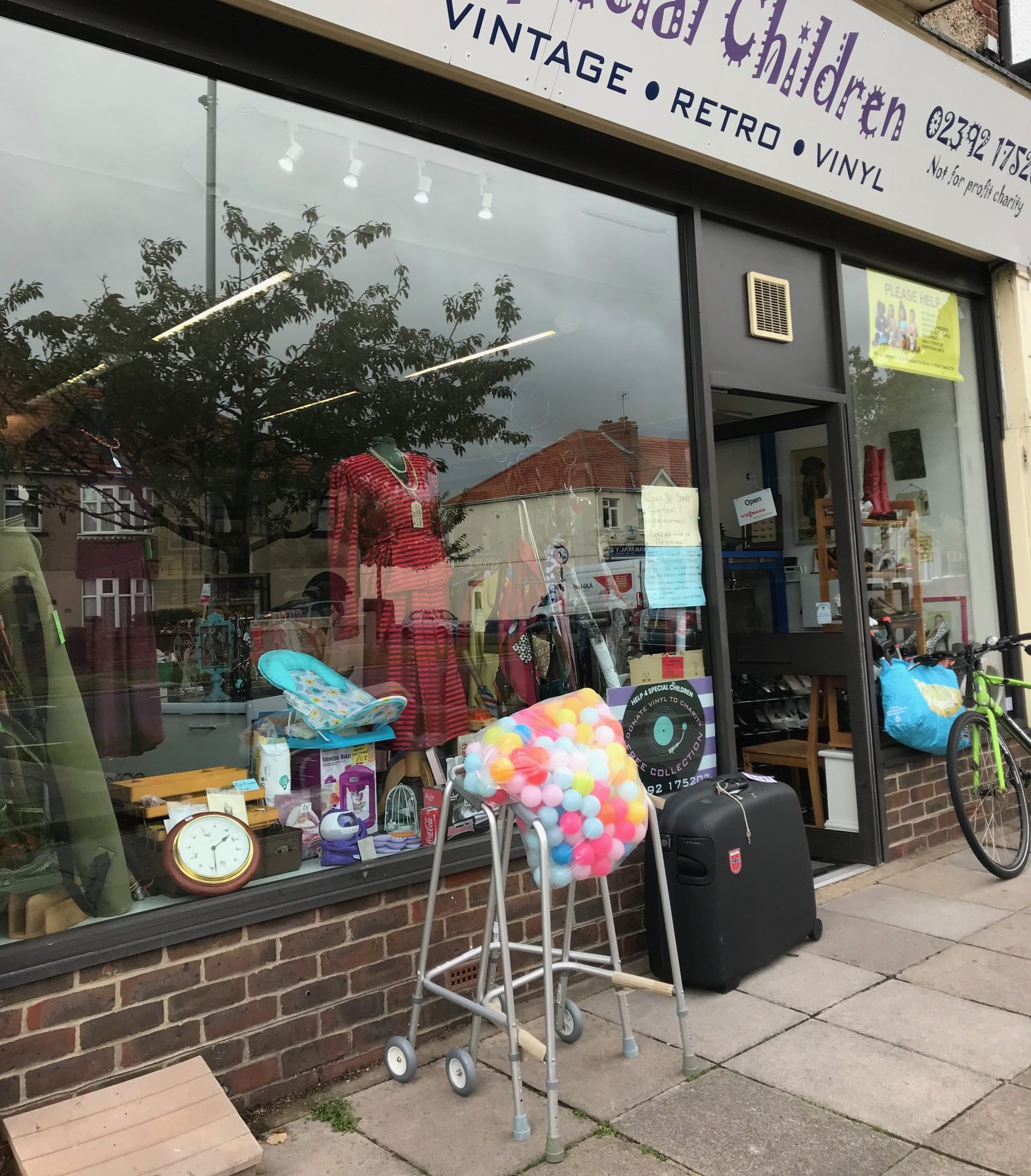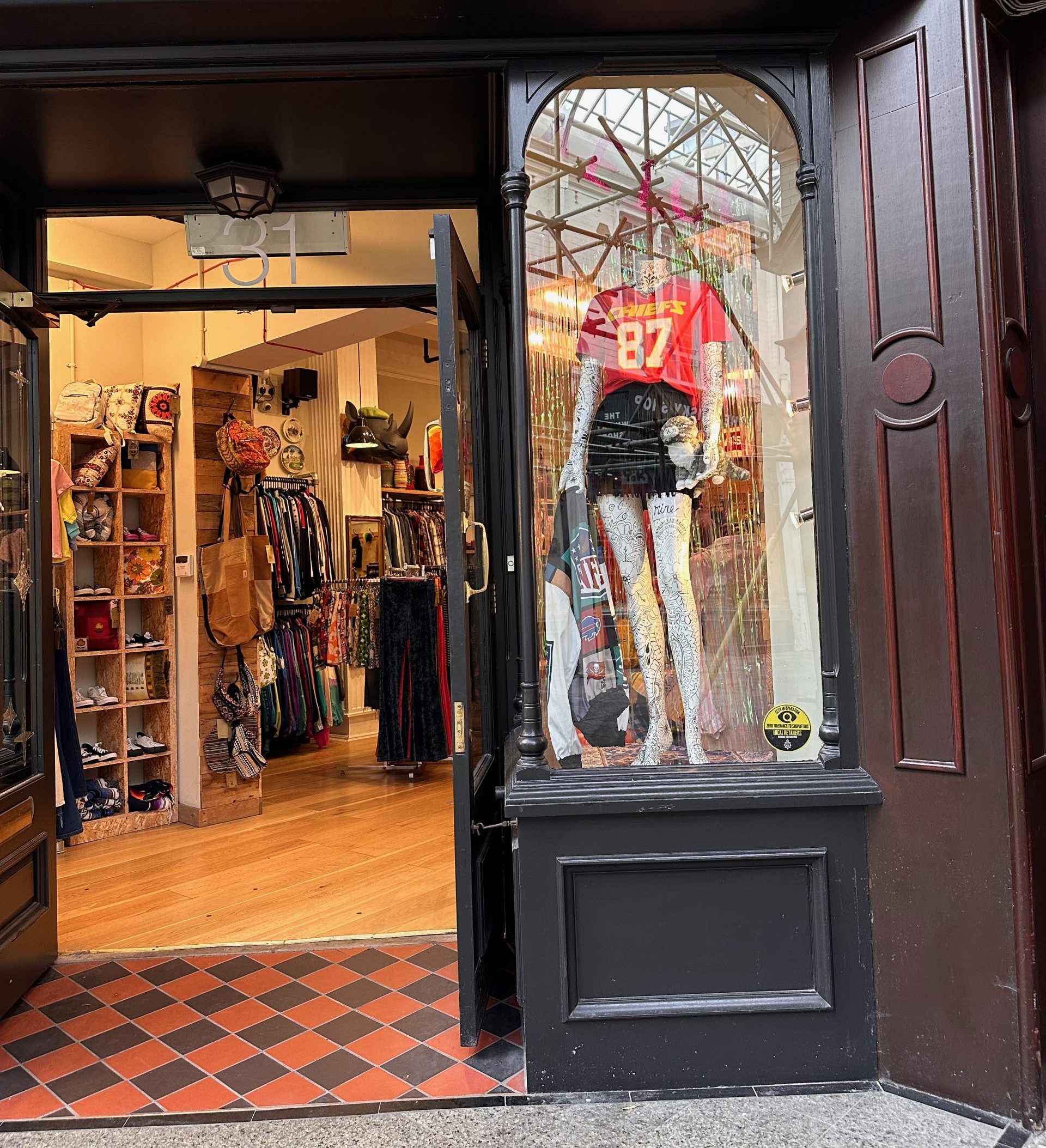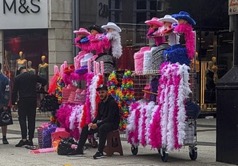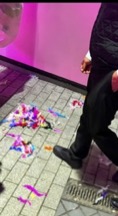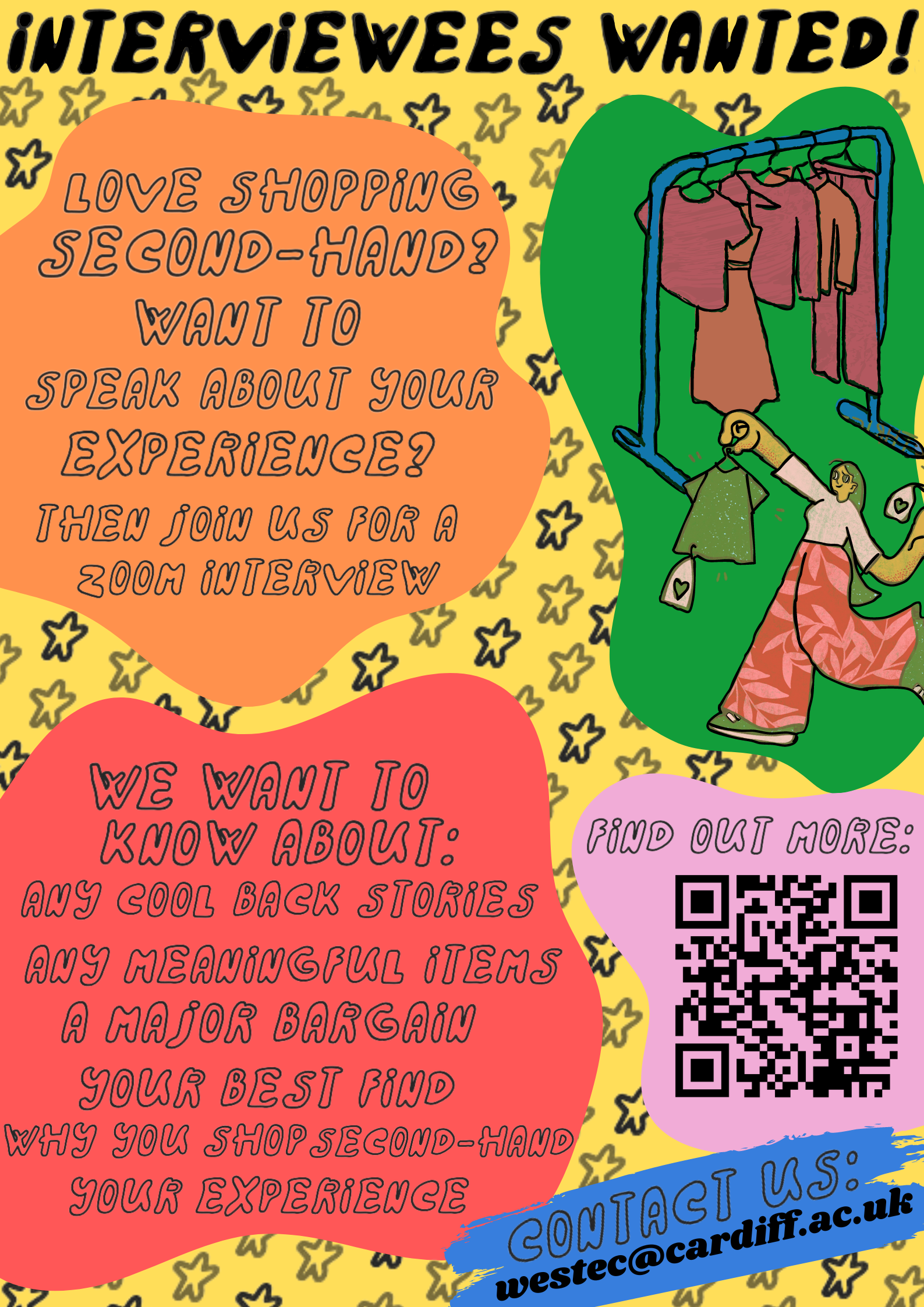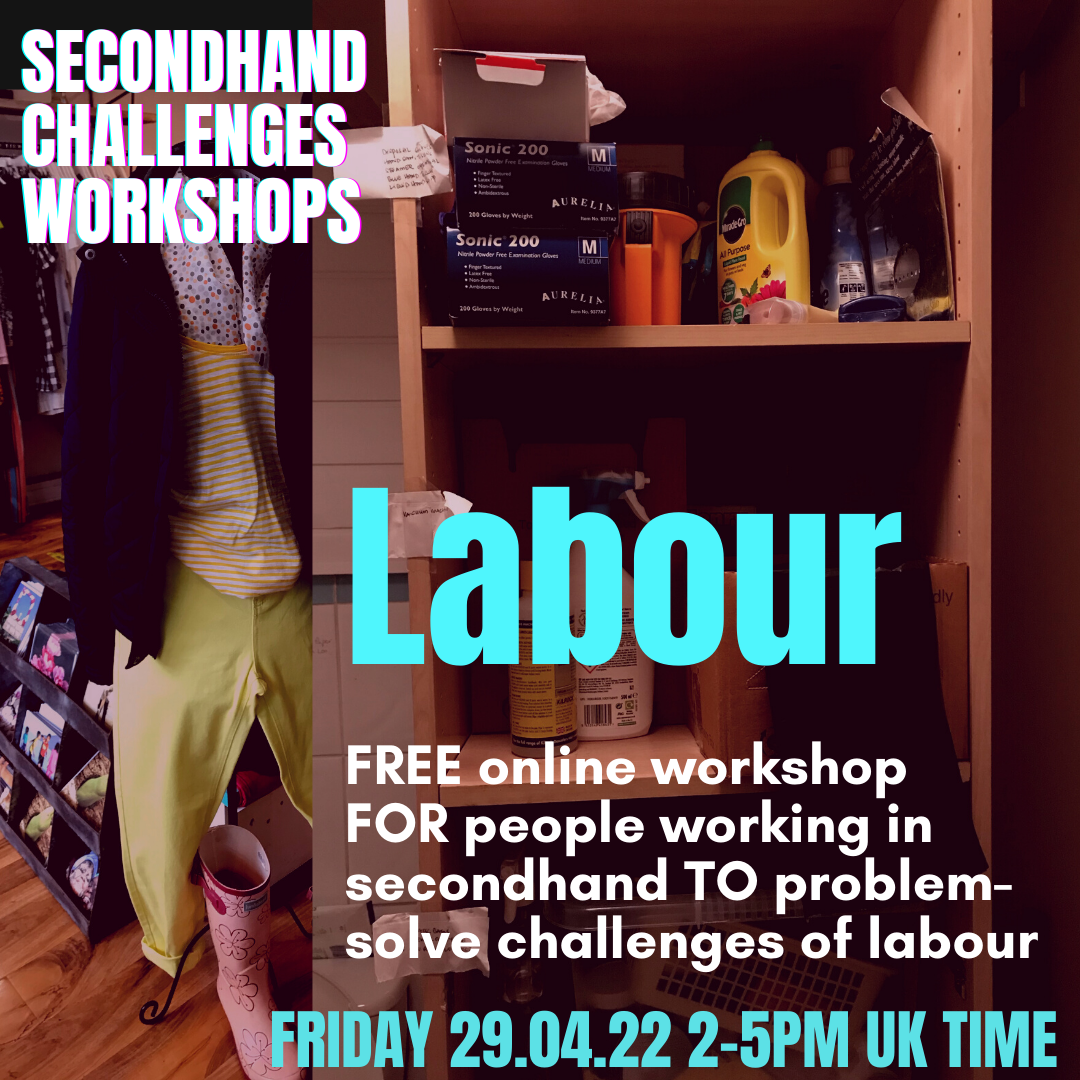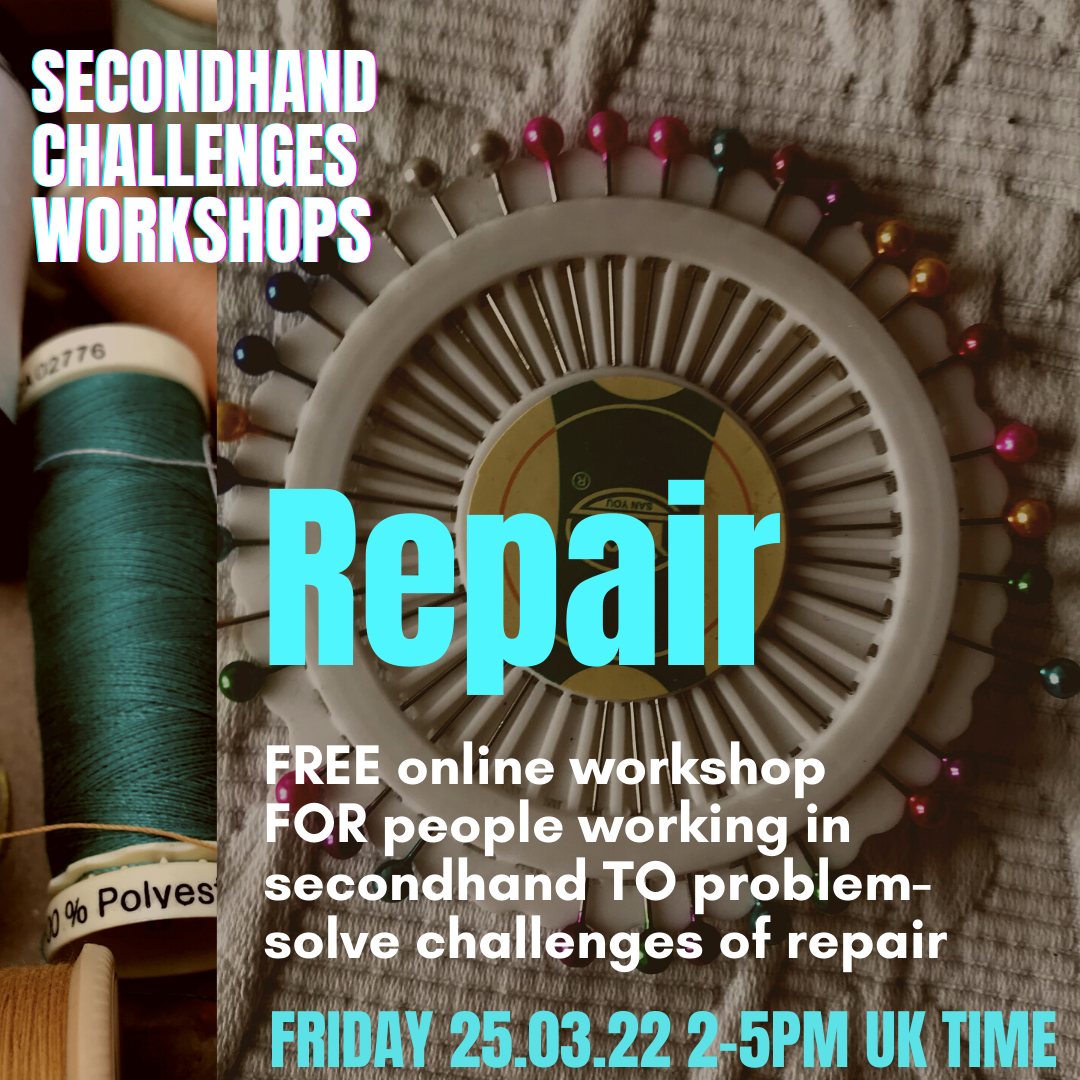Waste and Reuse, Repair, Labour and Community Welfare in Second-hand
Links to four project reports below on the Second hand Challenges Workshop Series
Here in the UK and beyond, we seem to be in a moment of transformation when it comes to highlighting, rethinking, and reimagining how we relate to our things. New public conversations are happening about sustainability, equity, and other problems with everyday household things – such as materials, use, conditions of manufacture and disposal.
Relatedly, there has been a recent upwelling of popular, industry, government, and academic interest in second-hand and sharing economies. There is an exciting range of work happening in and around the second-hand economy right now, from activism and grassroots initiatives, to critical research on design, systems and everyday practices, and major policy shifts.
Yet despite this rising interest, the opportunities for stakeholders to learn about each other’s work and problem-solve together have, so far, been relatively rare.
The Second-hand Challenges project takes steps towards the ambitious goal of creating more equitable, sustainable, circular, and community-based second-hand economies.
In 2022, with the support of Impact Acceleration Account funding from the Economic and Social Research Council, the team (Alida Payson, Maya Wassell Smith, Rhiannon Craft and Violet Broadhead) ran of a series of workshops, which brought together researchers and stakeholders to explore challenges in the second-hand economy around the themes of work, waste, repair and reuse, and community welfare.
The four reports attached here document each workshop. They summarize the speaker presentations, drawing out key themes in the discussion, and presenting the ideas participants developed during the collaborative brainstorming activity, as we considered the following questions:
-
How might we make second-hand work more equitable and responsive to the needs and rights of different workers?
-
How might we reduce waste in second-hand economies?
-
How might we create cultures and systems of repair?
-
How might we strengthen community and everyday welfare provision in second-hand spaces?
Tackling Challenges
The spaces of the second-hand economy – repair cafés, charity shops, sewing groups, upcycling studios and tip shops, to name only a few – are key sites in local and global waste and reuse flows, facilitating the reuse, repair, and recycling of a great range and quantity of goods.
As well as having positive impact in terms of sustainable resource use, these activities create opportunities for everyday welfare, social connection and solidarity. Second-hand spaces can be vital, open, accessible community resources, where people come together, build relationships, and get what they need for their projects, households, and neighbourhoods.
While the second-hand economy performs a number of invaluable roles, it is also subject to tensions. Extending the lives of objects takes time, skill, and resources, and is a form of labour which is often undervalued. There are gaps, hurdles and incongruities in systems of consumption and disposal, from the proliferation of objects designed to be short-lived and unrepairable, to the absence of outlets for certain kinds of goods. State welfare cuts, rising poverty and inequality, and the loss of community spaces through years of austerity place extra pressure on second-hand groups and organisations, which are not always equipped to deal with the needs of the marginalised people that approach them.
At each workshop, in a program of brief ‘lightning talks’, people with different experiences of second-hand worlds – including charity retailers, policy makers, recycling enterprises, educators, and community makers – shared their perspectives on pressing challenges.
Our speakers also sketched out examples of good practice: people, projects and organisations committed to revaluing devalued skills, turning trash into treasure, and fostering community connection and reparative politics.
The workshops used an adaptation of the ‘design sprint’ method of collaborative problem-solving, as attendees considered possible responses – both pragmatic and blue-sky – to the challenges identified in a fast-paced brainstorming session, collective discussion, and a more focussed period of concept development.
-
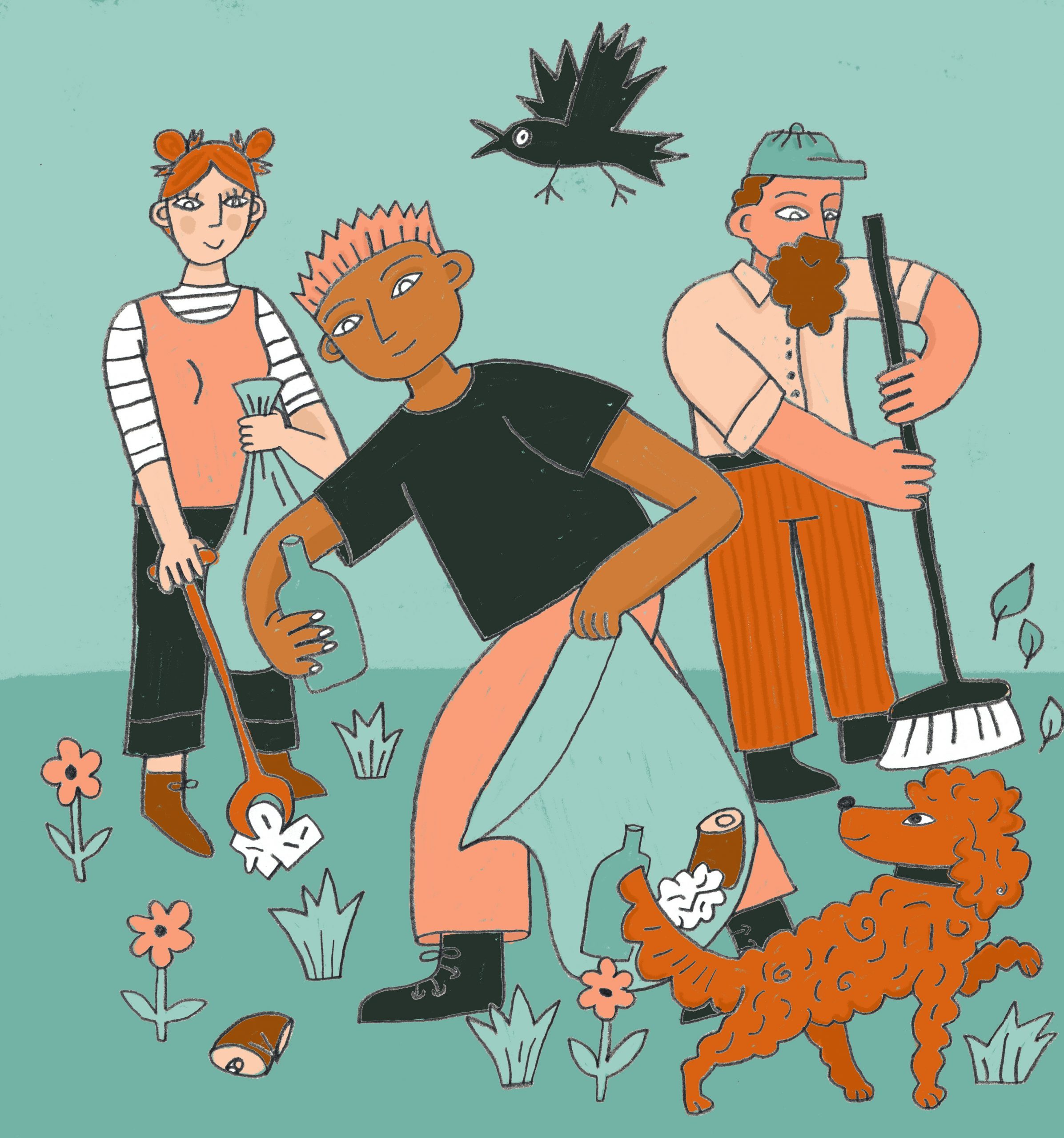
Illustration by Efa Blosse-Mason
-
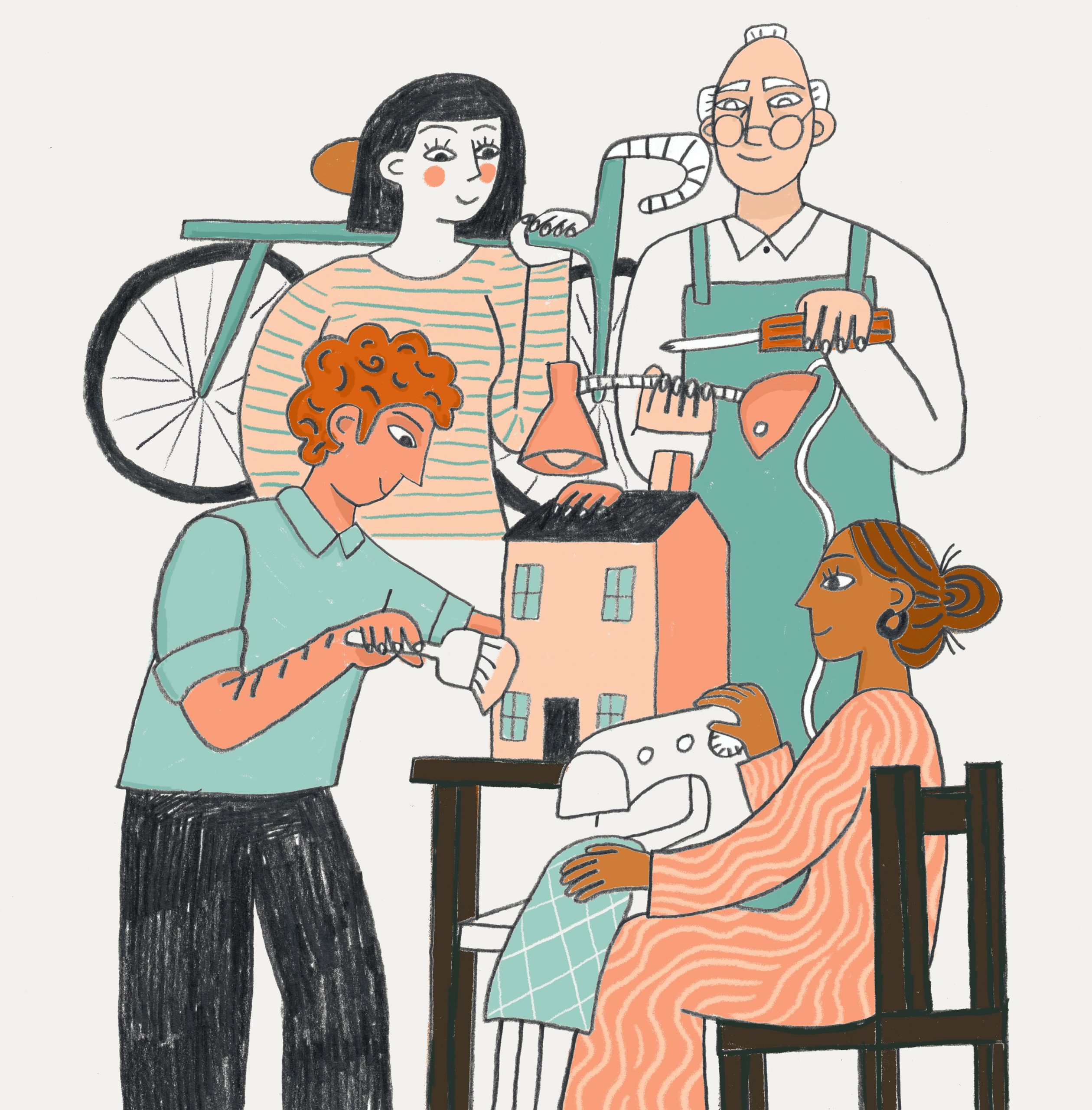
Illustration by Efa Blosse-Mason
-
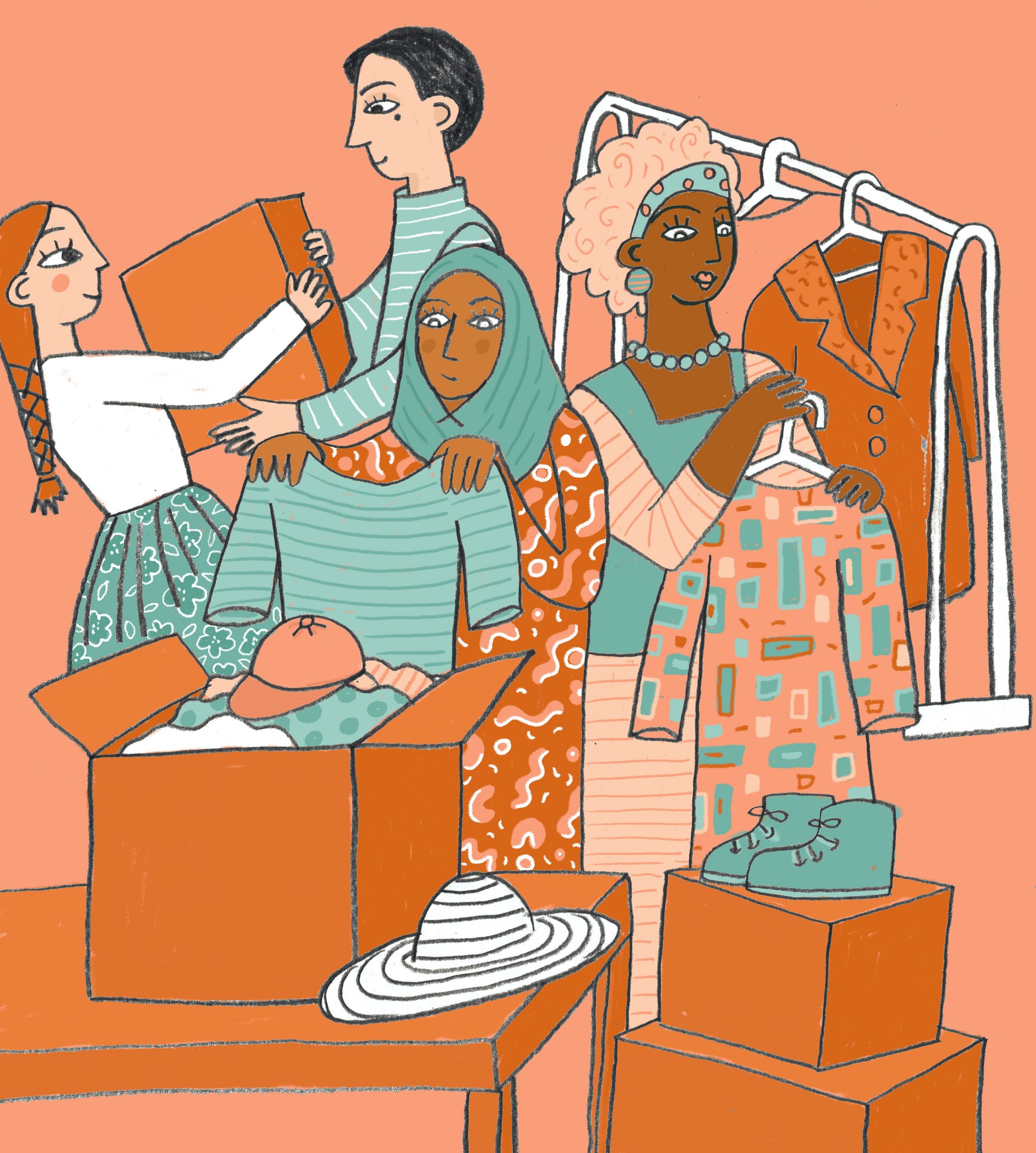
Illustration by Efa Blosse-Mason
-
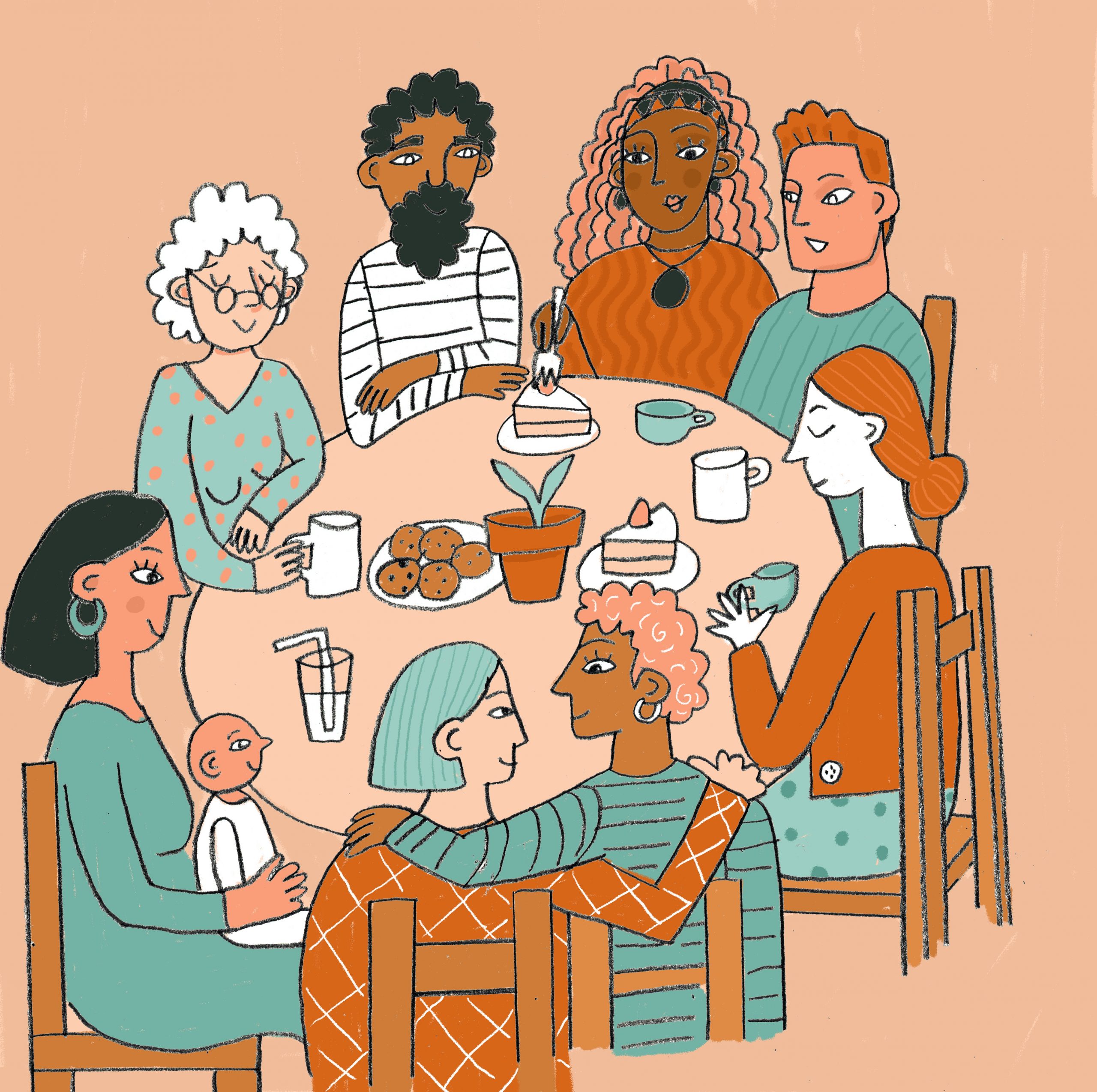
Illustration by Efa Blosse-Mason
What’s next?
The aim of the Second-hand Challenges workshop and report series is to draw attention, not only to what is wrong, but also to what is possible in second-hand worlds. When thinking about issues with serious political, social and environmental ramifications, it is easy to feel overwhelmed, to believe that our individual actions are too small, and that the problems we face are too intractable.
It is our hope that the experience of making connections and exploring solutions with like-minded people has left workshop attendees a little more motivated and better equipped to tackle the thorny issues they encounter in the second-hand economy. The reports provide a flavour of this process and, perhaps, a starting point for future work, whether in the germ of an idea for a second-hand project, as a template for creative problem-solving in organisations and community groups, or as a path towards research and policy which responds directly to the needs of second-hand stakeholders.
We will also be holding an online consensus-making workshop 7-9pm on Thursday 23rd March, where participants will be invited to give feedback on the project so far, and offer their perspectives on its future direction.
Register your free place here: https://www.eventbrite.co.uk/e/overcoming-second-hand-challenges-moving-forward-with-consensus-tickets-539054575747
Please share the reports widely. If they spark an idea, change your perspective or your participation in the second-hand economy – at work, in the community, or as an individual – we’d love to hear from you.
Finally, watch this space in the coming weeks, as we explore some cross-cutting themes from the workshop discussions.
paysonAB@cardiff.ac.uk
CraftRK@cardiff.ac.uk
v.broadhead.2019@bristol.ac.uk
WassellSmithML@cardiff.ac.uk

